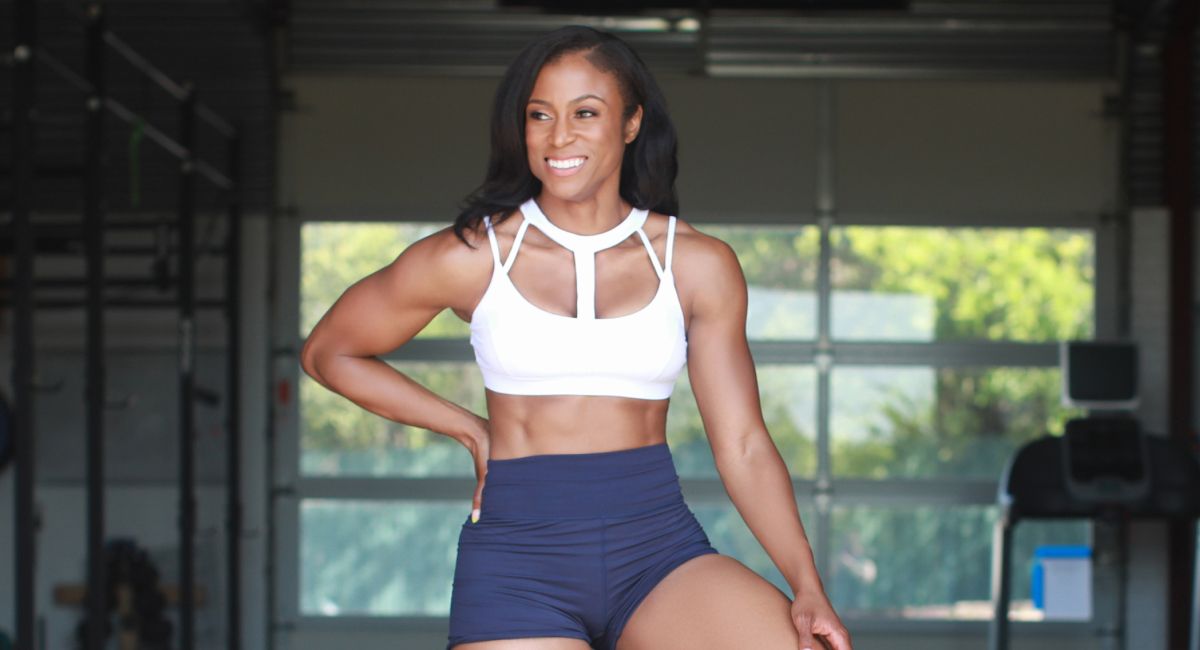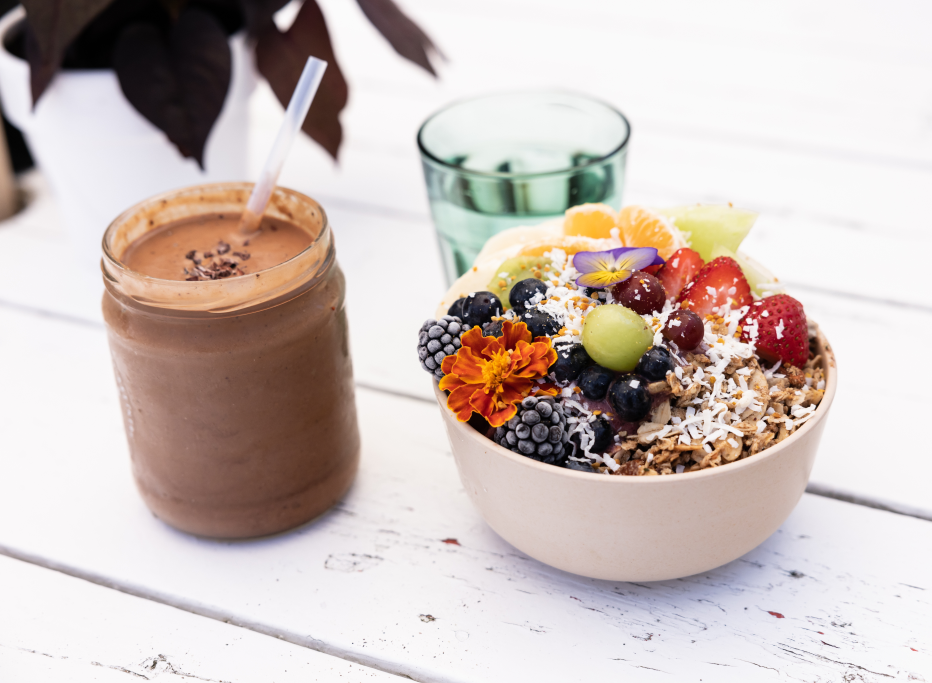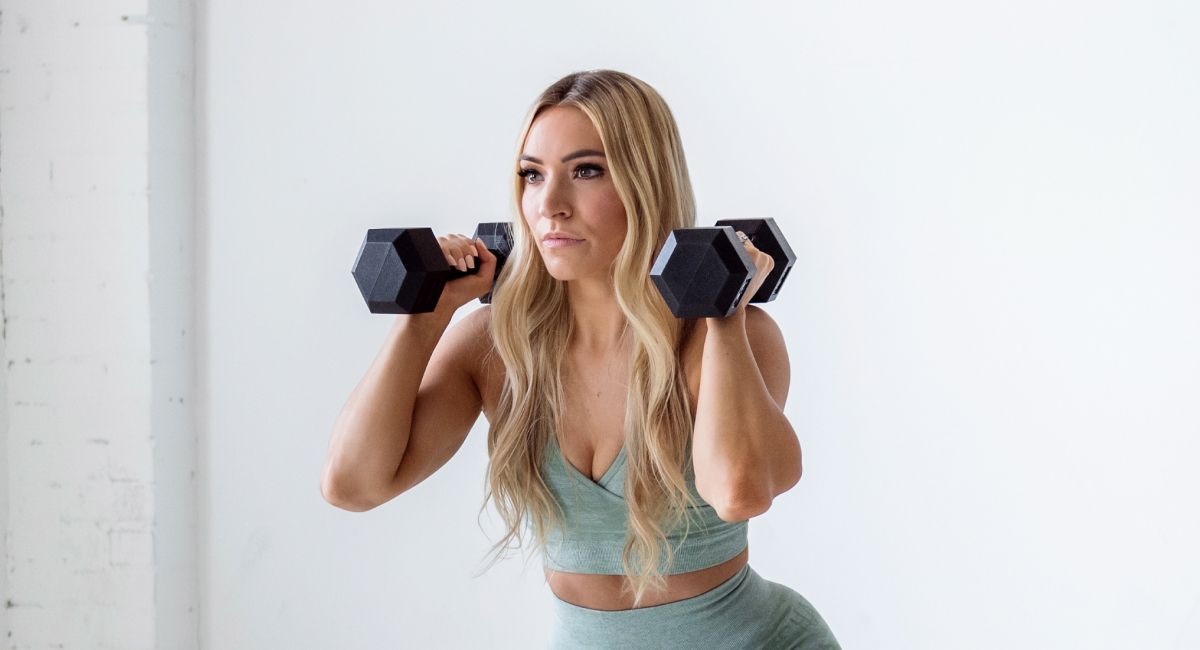How to Eat the 80/20 Way

Nutrition is key when it comes to losing fat and building muscle. But it’s easy to feel overwhelmed with all the different approaches to healthy eating. You may have tried a few diets, but failed to lose any weight because they ended up being too restrictive. And if a diet plan is too restrictive, it’s easy to fall into a cycle of beating yourself up for not following the diet perfectly, and feeling guilty.
The 80/20 way of eating offers a more flexible solution and acknowledges that you don’t have to eat perfectly all of the time to be healthy, or even to lose weight.
Did you know that the 80/20 rule is Anna’s preferred style of eating? She firmly believes that being able to eat and drink what you want in moderation is important for both your physical and mental health. Obsessing over food ultimately does more harm than one unhealthy indulgence.
So, if you’ve struggled with your nutrition in the past, you’ll want to know more about the 80/20 approach!
WHAT IS THE 80/20 METHOD AND HOW DOES IT WORK?
The 80/20 method is a way of eating where you eat whole, natural foods 80% of the time and allow for indulgences and treats the other 20% of the time. 80% of the time, the focus is on eating nutrient dense, high-quality foods that serve your goals. The other 20% of the time can be reserved for nights out with friends, cravings, and whatever else you want to eat or drink!
You may be wondering — how many meals fit into the 20% indulgences? Fit Body’s in-house Registered Dietitian Kylie Morse acknowledges that this is where the 80/20 method can get a little tricky. “An 80/20 lifestyle is not meant to mean indulging exactly 20% of the time, all the time,” she explains.
Instead, she encourages us to think of this way of eating as a concept that helps us find a healthy balance. For some, they may prefer to apply the 80/20 rule on a daily basis (where you enjoy a small treat at the end of the day, for example) and others will choose to view it on a weekly basis (and perhaps eat in a more relaxed manner one big meal of the week).
"The overall message is to fuel your body well the majority of the time, and to not stress about indulgences here and there," Morse says.
TRY THE FIT BODY APP FREE FOR 7 DAYS! DOWNLOAD NOW.

CAN YOU LOSE WEIGHT ON AN 80/20 DIET?
Yes, you can lose weight while eating the 80/20 way! Morse states that as long as that person is in a caloric deficit, there’s no reason they won’t be able to lose weight.
"However, if the 20% is out-weighing or balancing out the 80% in terms of calories, a person will not see weight loss," Morse reminds us. Because the 80/20 rule is all about flexibility, it’s very possible you could accidentally find yourself in a calorie maintenance or surplus, and not hitting the amount of protein needed.
If your goal is weight loss, Morse explains that the concepts of mindful eating, maintaining a calorie deficit, and consuming enough protein are still all important.
As a Fit Body subscriber, if you’re attracted to the 80/20 rule, but feel confused about how to maintain a calorie deficit during it, feel free to email Kylie at nutrition@fitbodyapp.com for guidance!
WHAT DOES IT LOOK LIKE TO EAT THE 80/20 WAY?
So now that you know what the 80/20 way of eating is, how to apply it, and whether or not it can support your weight loss goals, let’s dive into what sort of foods to focus on: 80% of the time, focus on:
- Lean protein
- Fresh fruit
- Vegetables
- Whole grains
- Low-fat dairy
- Healthy fats from sources like olive oil and nuts
Foods you can save for the other 20% of the time:
- Refined carbs
- Highly processed foods
- Alcohol
- Unhealthy fats
Avoid the temptation to label any foods you eat during your relaxed 20% as “bad” foods, as this defeats the point of the 80/20 way of eating. It’s important to fully accept, and most importantly enjoy, whatever you choose to eat and simply be mindful of the food choices you make.

WHAT ARE THE PROS OF THE 80/20 RULE?
Pro #1: Food freedom It’s easy to fall into the pitfalls of diet culture. When you let go of food rules, and ditch the inclination to term foods as “good” and “bad,” you can defeat food guilt and find true food freedom.
Pro #2: No obsessive calorie or macro tracking While there’s nothing wrong with calorie or macro tracking (in fact, there are plenty of benefits!), and especially if you have specific fitness goals you want to hit, it isn’t for everyone. Calorie and/or macro tracking isn’t necessary to follow the 80/20 method which may be beneficial for people who are triggered by tracking numbers.
Pro #3: Flexibility The 80/20 way of eating gives you flexibility in how to live your life. You aren’t restricted to what you can eat and you’re able to enjoy the foods you love. Everything on the menu is literally on the table, in moderation!
WHAT ARE THE CONS OF THE 80/20 RULE?
Con #1: Less nutrition education When you start to track calories and macros, you naturally become more educated on what’s actually in your food. With the 80/20 rule, there’s no real need for you to be aware of the caloric value of your food or how much protein, carbs or fat it contains.
Con #2: Accidentally overeating Just because you’re eating healthy foods 80% of the time isn’t a free pass to eat bigger portions than you need. While foods like almonds and avocados are incredibly nutritious, they are calorically dense. If your goal is to lose weight, this won’t happen if you’re overeating, even if the foods you’re eating are healthy.
Con #3: It may not work if you have very specific goals While you can lose weight following the 80/20 rule, it may not be right for you if you have specific fitness goals that need to be achieved in a certain timeframe. For example, if you are a bodybuilder, with very specific physique goals, you have to be extremely disciplined and track what you eat.
SO, WHAT NOW?
The 80/20 way of eating may be perfect for you if you’re eager to eat more healthily in general. And if you do have specific fitness and aesthetic goals, you can still follow 80/20, just track your intake while doing it!
The great thing about 80/20 is you can make it fit your goals and what matters is that you find a way of eating that is realistic and sustainable for you. We hope you feel more informed about the 80/20 rule! Be sure to reach out to us if you have any questions.





